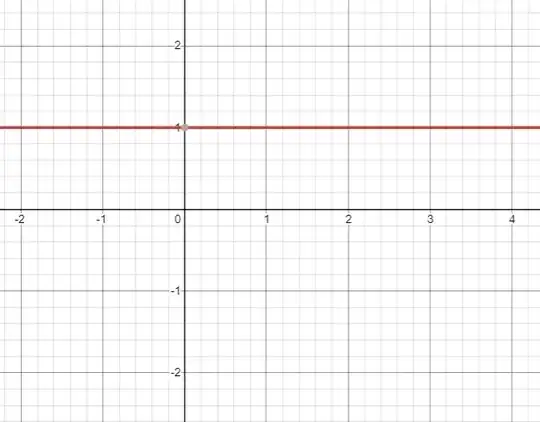So I saw exponents like $3^0$ and $4^0$, etc which are all equal to $1$.
And then soon I see that $0^0$ is not defined.
I checked the graph of $x^0$
Then I decided to make some observations.
We go like this:
$0.9^{0.9} = 0.909532576$
$0.8^{0.8} = 0.836511642$
$0.7^{0.7} = 0.779055912$
$0.6^{0.6} = 0.73602192281$
$0.5^{0.5} = 0.70710678118$
$0.4^{0.4} = 0.69314484315$
And then comes the moment:
$0.3^{0.3} = 0.69684530193$
And then, so on the values increase, and then finally the calculator breaks at $0.00000000000001^{0.000000000000001}$ and gives $1$.
I'd like to understand why $0.3^{0.3}$ is greater than $0.4^{0.4}$. And why the values go on increasing as we go $<0.3$.
So we get $\lim_{x\to 0} x^{x} = 1$.
Another amazing graph:
This thing has really intrigued me, and I wonder if there are more ways to prove that $0^0$ is undefined. Sharing more methods for the same would be highly appreciated!

